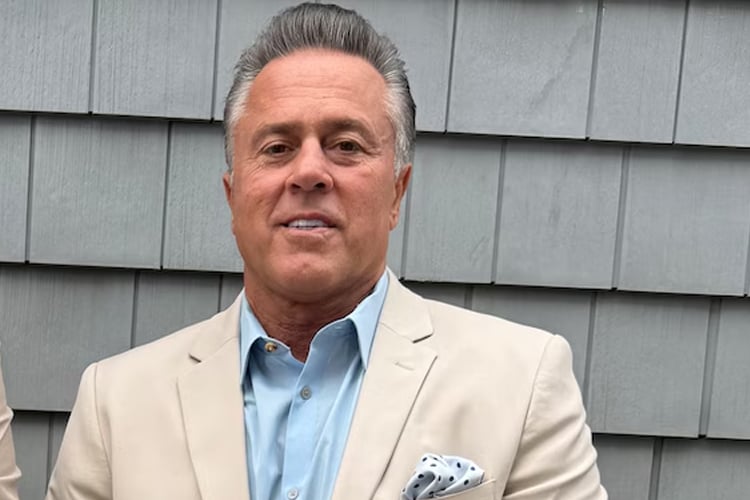ENGLISHTOWN, NJ – A newly appointed councilman in New Jersey will introduce an ordinance you can’t refuse.
In Englishtown, New Jersey, a half-square-mile speck of suburban boredom, Mayor Daniel Francisco decided to shake things up this week, nominating John Alite—yes, that John Alite, the ex-Gambino crime family enforcer with a body count—to a vacant council seat.
Francisco, a Republican, swore in the confessed Gambino family hitman on March 12, after Alite’s 14-year prison stint for racketeering, murders (at least six by his own tally), and enough shootings and beatdowns to make a Sopranos script blush.
The mayor touted Alite’s “vast experience” and “outreach work,” apparently unfazed by the fact that this guy once dumped a body near Flushing Meadows.
Only in Jersey does a rap sheet like that scream “public servant material.”
The nomination didn’t exactly get a standing ovation. Englishtown’s 2,300 residents split like a bad reality show cast—some cheered Alite’s supposed turnaround, pointing to his motivational speaking gigs and anti-drug rants (inspired, tragically, by his daughter’s 2022 fentanyl overdose), while others gagged at the idea of a mob rat turned councilman.
Francisco had to ram it through a 4-2 vote, breaking the tie himself after half the council bailed in protest, claiming he was turning the borough into his personal fiefdom staffed with “yes men.”
Alite, meanwhile, strutted in with a navy suit and a smirk, waiving the measly $3,500 salary—pocket change compared to the millions he raked in during his mob heyday—and promising to fix potholes and keep kids off drugs.
So now Englishtown’s got a councilman who’s traded cement boots for Robert’s Rules of Order, all thanks to Francisco’s wild gamble.
The guy who once ran with Junior Gotti and dispatched his foes, then snitched to dodge a life sentence is now an elected official in one of the most politically corrupt states in America.
Whether this is a redemption story or a slow-motion train wreck, Englishtown’s stuck with it—Francisco’s appointee isn’t up for election until 2027, unless someone grows a spine and challenges him and politically whacks him in the voting booth.
In a state where corruption’s practically a cultural heritage, a Mafia hitman turned lawmaker feels less like a scandal and more like Tuesday. Pass the cannoli.
Alite, once a feared enforcer for the Gambino crime family, has lived a life marked by violence, betrayal, and an unexpected turn toward redemption. Born on September 30, 1962, in Queens, New York, Alite’s journey from the streets of Woodhaven to a seat on the Englishtown Borough Council encapsulates a dramatic transformation that has captivated true crime enthusiasts and inspired debates about second chances.
Growing up in a working-class neighborhood, Alite was the son of a taxi driver and showed early promise as a baseball player, earning a college scholarship. However, an arm injury dashed his dreams of going pro, forcing him back to the gritty streets of New York. It was here, amid a culture of survival, that Alite fell in with the wrong crowd. Drawn to the wealth, power, and prestige of organized crime, he aligned himself with the Gambino family, despite his Albanian heritage barring him from becoming a “made man.”
By the 1980s, Alite had become a key associate of John “Junior” Gotti, son of the notorious Gambino boss John Gotti Sr. Nicknamed “The Calculator” for his financial acumen, Alite served as an enforcer and hitman for a Queens-based drug gang that reportedly moved eight kilograms of cocaine monthly. His criminal résumé grew extensive and brutal: he has claimed to have shot between 30 and 40 people, beaten about 100 with a baseball bat, and killed at least seven. Among his confirmed crimes was the 1988 murder of cocaine dealer George Grosso, whom he lured to a Queens tavern and shot three times in the head, dumping the body near Flushing Meadows Park. Another notable killing was that of Bruce John Gotterup in 1991, executed as retribution for stealing from Gambino associates.
Alite’s partnership with Junior Gotti was lucrative, with estimates suggesting they split tens of millions from drug trafficking, extortion, and other rackets. “We got treated like celebrities,” Alite once said, reveling in a lifestyle that included lavish spending—$1.5 million on attorneys alone—and a $10 million estate complete with baseball cages and an outdoor boxing ring. Yet, beneath the glamour, the mob life was treacherous. Alite described it as built on “treachery, lies, and sneakiness,” a reality that would soon turn against him.
In the mid-1990s, Alite relocated to the Philadelphia area, seizing control of the valet parking business amid infighting within the local Mafia. But by 2003, facing a federal probe and fearing a mob hit, he fled to South America. His freedom was short-lived; he was arrested in Brazil, and he endured two years in a brutal prison, where he was tortured and chained. Extradited to the U.S. in 2006, Alite faced a reckoning.
In 2008, Alite made a pivotal decision: he pleaded guilty to racketeering charges, including two murders, four murder conspiracies, at least eight shootings, and a litany of armed robberies and home invasions across multiple states. In exchange for testifying against the Gambino family, particularly Junior Gotti, he secured a reduced sentence. His testimony was instrumental in the 2009 conviction of enforcer Charles Carneglia, who received life for four murders. However, Alite’s efforts against Gotti Jr. fell short—Gotti’s racketeering trial ended in a hung jury, with jurors deeming Alite an unreliable witness.
Alite was sentenced to 10 years in 2011, but his cooperation shaved years off his time. He was released in 2012 on a five-year supervised release, having served less than half his sentence.
